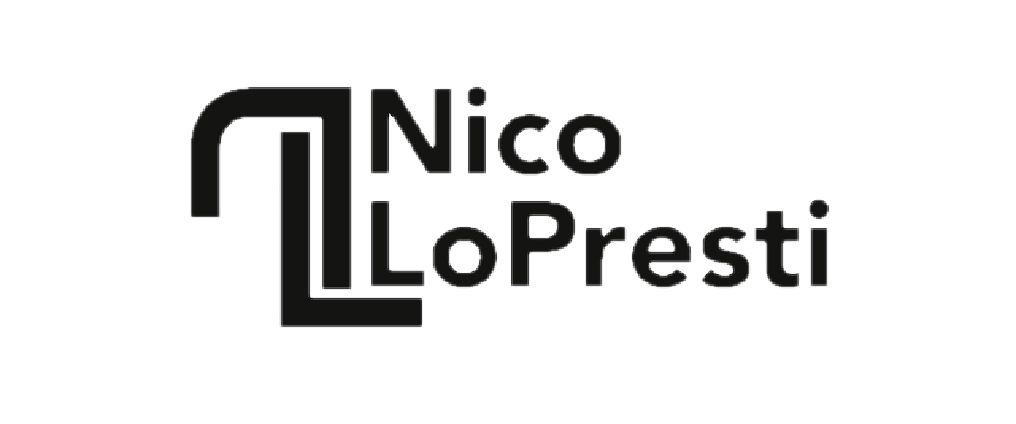Let’s Talk About Sales Follow-Up
You spend a lot of energy on creating leads. To capture the interest of potential customers in your product or service, you have invested time, energy, and resources. What occurs, though, after the initial contact? How can you convert those leads into paying clients?
The solution is as simple as a timely follow-up.
According to research, a lead’s chance of becoming a customer significantly drops over time. In reality, leads who are contacted within the first five minutes of displaying interest have a 100 times greater chance of becoming customers than those who are reached after 30 minutes. Only 37% of businesses, however, reply to leads within an hour.
This blog post will explore why timely follow-up is critical for maximizing your sales potential. We’ll look at the data behind lead conversion rates, the impact of delayed follow-up, and the benefits of a well-planned follow-up strategy. We’ll also share some practical tips and tools to help you follow up with leads more efficiently and effectively, so you can close more deals and grow your business.
Importance of following up in sales
The solution to converting leads into paying customers is sales follow-up. Reaching out to potential clients who have expressed interest in your product or service and keeping in touch with them until they make a purchase constitutes this procedure. However, a lot of salespeople are unaware that the timing of the follow-up is just as crucial as the follow-up itself.
Companies that reply to leads within an hour are seven times more likely to qualify the lead than those that respond after two hours, according to research by the Harvard Business Review. Yet, according to the same study, only 37% of businesses reply to leads within an hour. As a result, businesses have great potential to obtain a competitive advantage by prioritizing timely sales follow-up.
What can happen if you don’t do this
Lead conversion rates can be greatly influenced by delayed follow-up. The less likely a lead is to become a customer, the longer you wait to follow up with them. An InsideSales.com study showed that the probability of qualifying a lead fell by 400 times and 21 times, respectively, after 30 minutes had passed.
The customer’s perception may be negatively impacted by delayed follow-up. When a potential customer expresses interest in your good or service and you don’t get back to them right away, they can think you don’t care about their business or are unprepared to meet their needs.
What is the purpose of all this?
The purpose of this blog post is to highlight the importance of timely sales follow-up and to explain the impact that delayed follow-up can have on lead conversion rates. We will also share some practical tips and tools to help sales professionals prioritize follow-up efforts and increase their chances of converting leads into paying customers. By the end of this post, you will have a better understanding of why timely follow-up is critical for sales success, and how you can implement a successful follow-up strategy in your own business.

The Data Behind All of This
Some statistics on lead conversion rates
Lead conversion rates are a key metric for any sales team. This refers to the percentage of leads that ultimately make a purchase or become paying customers. According to a report by HubSpot, the average conversion rate across industries is around 2.35%. However, this can vary widely depending on the industry and the specific tactics used to convert leads.
The impact of timely follow-up on lead conversion
One of the biggest factors that can impact lead conversion rates is the speed and quality of follow-up. As mentioned earlier, studies have shown that companies that respond to leads within an hour are much more likely to qualify the lead than those that respond after two hours. In addition, leads that are followed up quickly are more likely to remember the company and be receptive to its messaging.
On the other hand, delayed follow-up can significantly decrease the likelihood of converting a lead. If a lead reaches out to a company and doesn’t receive a response for several days, they may assume that the company is not interested or has already moved on. This can damage the company’s reputation and make it more difficult to close the sale.
The role of lead nurturing in the sales process
Building relationships with potential customers over time to ultimately convert them into paying clients is known as lead nurturing. Various strategies, including email marketing, social media interaction, and customized content, may be used for this.
Because it enables businesses to stay top-of-mind with potential customers even if they aren’t ready to buy right away, lead nurturing is crucial. Businesses may boost the likelihood that a lead will eventually convert into a customer by offering helpful information and developing trust.
In addition, lead nurturing can help to keep potential customers engaged even if they don’t respond to initial follow-up attempts. By continuing to provide value and personalized messaging, companies can increase the chances that a lead will eventually respond and move further down the sales funnel.

Consequences For Poor Follow-Up Timing
Impact of delayed follow-up on customer perception
The customer’s perception may be significantly impacted by delayed follow-up. When a potential consumer contacts a business and does not hear back right away, they can conclude that the business is not interested in doing business with them or that they are unprofessional. The reputation of the business may suffer, and it may be more challenging to close the sale.
Delays in follow-up might also result in business opportunities being lost. If a potential consumer contacts a business and does not hear back, they can choose a rival that is more engaged and attentive.
Missed Opportunity Costs
Missed opportunities can have a significant impact on a company’s bottom line. Every lead that goes unanswered or is not followed up promptly represents a potential sale that has been lost. According to a study by InsideSales.com, the average cost of a missed opportunity is around $1,000.
In addition to the direct cost of missed opportunities, there can also be indirect costs such as damage to the company’s reputation and loss of future business opportunities.
Effects on sales team morale
The morale of the sales crew might be negatively impacted by delayed follow-up. It can be disheartening and hurt the motivation and productivity of a sales team if leads cannot be converted into clients as a result of inadequate follow-up.
Additionally, if the sales team is aware that the company is not responding to leads in a timely manner, it may frustrate them and make them feel as though management is not on their side. High turnover rates and trouble finding new talent may result from this.
Companies can support the maintenance of a good and motivated sales force that is more likely to convert leads into paying customers by prioritizing timely follow-up and making sure that the sales team has the tools and resources necessary to succeed.

Benefits of a Good Timely Follow-Up Strategy
Increased Conversion Rates
One of the primary benefits of timely follow-up is increased conversion rates. When potential customers receive prompt and personalized follow-up, they are more likely to engage with the company and move further down the sales funnel. This can result in a higher number of qualified leads and ultimately more sales.
According to a study by Harvard Business Review, companies that respond to leads within an hour are 7 times more likely to qualify the lead than those that respond after two hours. In addition, the same study found that companies that followed up within an hour were 60 times more likely to qualify the lead than those that waited 24 hours or more.
Improved Customer Experience
A prompt follow-up might also enhance the general client experience. Potential consumers feel appreciated and are more likely to have a favorable opinion of the business when they receive timely and personalized follow-ups. Increased loyalty and repeat business may result from this.
Furthermore, prompt follow-up can assist in addressing any issues or queries that potential clients may have. This can increases customers’ trust and confidence in the firm, increasing the likelihood that they will decide to work with them in the future.
Higher customer lifetime value
Finally, timely follow-up can contribute to higher customer lifetime value. By providing a positive customer experience and building trust with potential customers, companies can increase the likelihood that those customers will become repeat customers and refer others to the company.
In addition, timely follow-up can also help to identify opportunities for upselling or cross-selling. By maintaining regular communication with customers and understanding their needs and preferences, companies can offer additional products or services that may be of interest.
Overall, setting timely follow-up as a top priority can significantly affect a company’s bottom line by improving conversion rates, enhancing the customer experience, and boosting customer lifetime value.

Tips and Tools for Timely Follow-Up
Setting up a follow-up process
To maximize the potential of timely follow-up, it’s important to establish an effective lead follow-up process. This can include determining the appropriate timeline for follow-up based on the type of lead and their level of engagement, as well as assigning responsibilities for follow-up within the sales team.
In addition, companies should consider implementing a lead-scoring system to prioritize follow-up efforts based on the likelihood of conversion. This can help to ensure that the most promising leads receive timely and personalized follow-up.
Using automation tools
Automation tools can be incredibly valuable in streamlining follow-up efforts and ensuring that leads receive prompt and consistent communication. This can include email automation tools, CRM software, and chatbots.
By automating certain aspects of the follow-up process, companies can ensure that leads are receiving timely and personalized messages, even when the sales team is not available. This can help to maintain engagement and keep leads moving through the sales funnel.
Personalize messages to increase engagement
Increase engagement and forge relationships with prospective clients with the help of personalized follow-up messages. This can involve bringing up certain interactions or hobbies that the lead has mentioned, as well as adjusting the messaging to fit their particular requirements and tastes.
Additionally, firms can personalize follow-up messages based on the lead’s behavior and previous interactions with the firm using data and analytics. The possibility of conversion may increase as a result of being able to provide messaging that is more focused and relevant.
Overall, businesses should maximize the potential of timely follow-up and raise their chances of converting leads into customers by putting up an efficient lead follow-up process, employing automation technologies to speed up follow-up efforts, and personalizing follow-up messages.
In The End…
Recap of timely follow-up
In conclusion, prompt follow-up is crucial for successful sales. It gives sales teams the chance to interact with potential clients while their interest in them is still high and can significantly affect lead conversion rates. On the other side, if follow-up is delayed, opportunities may be lost, customers may see you negatively, and the sales team’s morale may suffer.
Companies may boost their conversion rates, raise customer happiness, and ultimately spur revenue development by prioritizing prompt follow-up and putting in place a successful lead follow-up procedure.
Final thoughts
Timely follow-up is crucial for developing connections and turning leads into customers, but it may also significantly affect the bottom line. Companies may boost revenue and profitability by optimizing sales potential and turning more leads into customers.
Additionally, businesses can boost customer loyalty and retention, which can result in a higher customer lifetime value, by providing timely follow-up and personalized messaging.
Overall, it is difficult to exaggerate the importance of timely follow-up to the bottom line. Companies can accomplish considerable sales and revenue development as well as create enduring client connections by prioritizing prompt follow-up and putting in place efficient processes and technologies.
I hope you enjoyed this blog and got something useful out of it!
Click here to read more blogs!
NL
